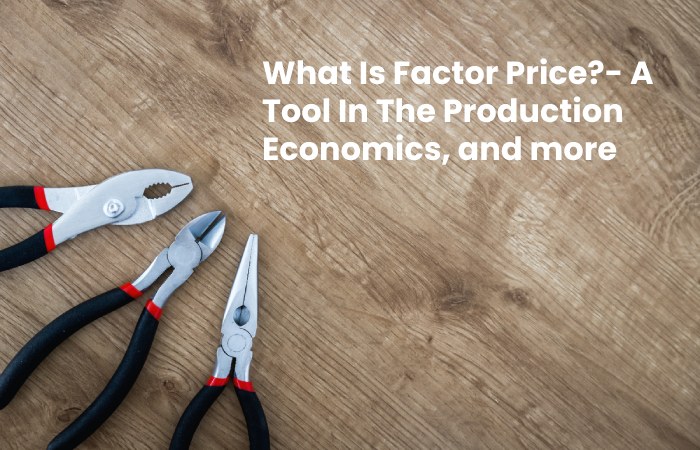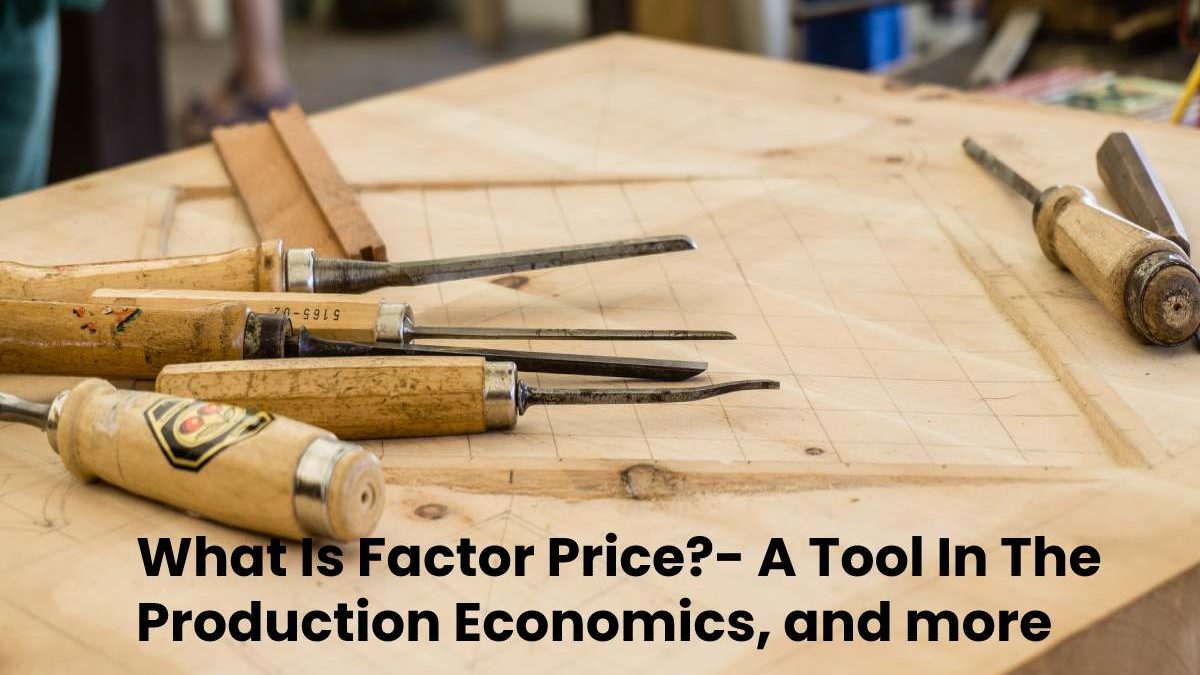Factor Price is a construct within an economic theory that follows the concept that the selling price set for a finished good or service is influenced by the costs involved in creating and manufacturing that product. The basic idea is that the price factor determines by taking into account all production factors. However. There is some disagreement actual demand for the product also plays a role in determining what is known as the natural factor price reasonable or service. Or whether price focuses solely on the costs and incentives that motivate a firm to produce the product.

Table of Contents
A Tool In The Production Economics Process
Price can often help determine whether the production of a particular good or service is worth the time, effort, and resources require to manage the production process. Cost of raw materials. Labor and the cost of running the facility the goods are made provide valuable clues as to the value of the end product. At least in terms of how much the business invested in each unit produced. It is to be determine what must set price to cover the production costs adequately. If that price is higher than the market, continued production of that good is unsuccessful.
There Is Some Disagreement Regarding The Price Factor And Whether Consumer Demand Goes Into Determining That Value.
One university of thought holds that consumer demand does not affect the factor or natural price, although this will be very important in setting the retail price of the finished goods. Another thought process suggests that consumer demand indirectly impacts price as the volume of production is determine by this demand. If the output of given good results in a lower unit cost when that product is manufacture in higher quantities. This would mean that lower demand would result in a higher factor price.
In both cases, companies should consider the price factor to determine whether it is profitable to continue producing a particular product since most companies’ idea is to provide consumers with products that generate profits for the company.
The Prices Of The Factors Of Production (Salaries Included), We Also Set Them As Consumers
“The prices of the goods of higher order (that is, those furthest from consumption) are finally determine by the costs of the interests of the first order. Or lower order, that is, consumer goods. As a consequence of this dependency. They ultimately determine subjective valuations members of the market society.
Now, Then, He Raises A Difference Between “Valuations” And “Prices”:
However, it is crucial to understand that we deal with price connections, not valuation connections”. What do you mean by that?
I understand the following: the consumers’ valuations concerning consumer goods determine the prices of all intermediate goods and the production factors that intervene in the production process until reaching the final stage of consumption. That is to say, the valuations of the consumers of cigars and cigarettes determine the price of tobacco. But in all that process that goes from the tobacco seed, it’s planting, harvesting, drying, grinding and elaboration the cigar. These reflect final valuations.
Again, consumers are willing to pay a specific price for the cigarette that all previous costs in the production chain are justified. Up to the first steps or. As Mises would say, the furthest stages.
Mises Continues
The prices of consumer goods condition the prices of complementary factors of production. The elements of production value with the costs of the products, and from this valuation. Their prices emerge. Prices consumer goods engender actions result from determination prices factors production”.
This short paragraph could raise issues of central importance in our current economies. For example, the level of remuneration for labor in a particular area of the economy ultimately depends on consumers’ valuations of the final product.
Also Read: What Is The Joining Between Knowledge Engineering And Management?


